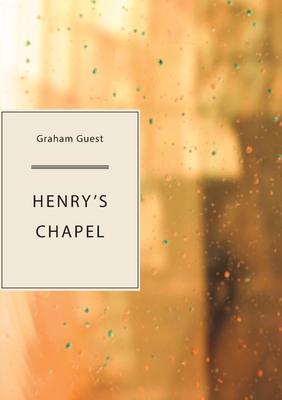In Graham Guest's novel Henry's Chapel we watch a film by proxy, through the eyes of a narrator who offers a play-by-play account, complete with probing analysis, of Albarb Noella's Lawnmower of a Jealous God. Within this unusual frame we encounter the story of an isolated family in rural East Texas, a tragicomic tale of incest, abuse, mental illness and liberation. As meta-narrative and narrative merge into one another, the film's characters, its director, and implicitly the narrator and author themselves all become significant figures, while the film itself becomes both an immersive if ghostly medium and a distanced object of critical inquiry, its meaning and being inseparable from the metafictional organism that contains it. The final product is a kind of narratological incest heretofore unexplored.

In Graham Guest's novel Henry's Chapel we watch a film by proxy, through the eyes of a narrator who offers a play-by-play account, complete with probing analysis, of Albarb Noella's Lawnmower of a Jealous God. Within this unusual frame we encounter the story of an isolated family in rural East Texas, a tragicomic tale of incest, abuse, mental illness and liberation. As meta-narrative and narrative merge into one another, the film's characters, its director, and implicitly the narrator and author themselves all become significant figures, while the film itself becomes both an immersive if ghostly medium and a distanced object of critical inquiry, its meaning and being inseparable from the metafictional organism that contains it. The final product is a kind of narratological incest heretofore unexplored.